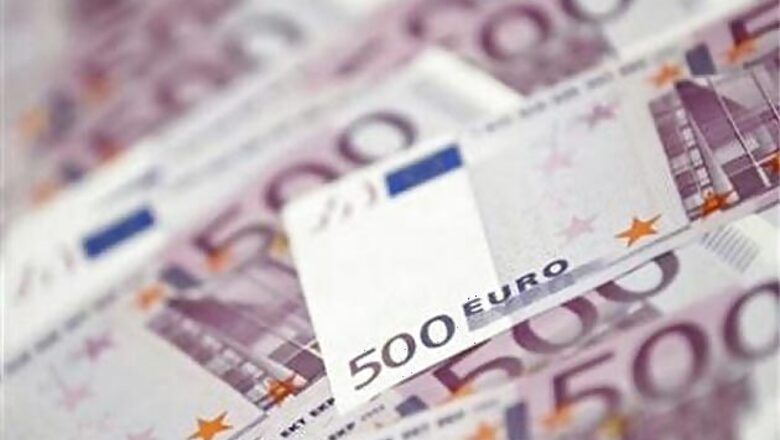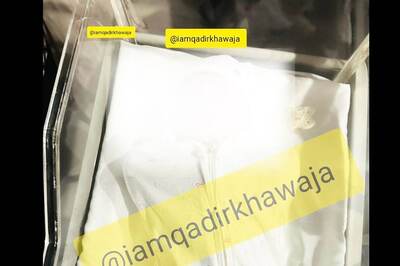
views
New York: The euro fell to a two-year low against the dollar on Tuesday as investors were wary that a German court could delay Europe's new bailout fund, while a series of profit warnings from US companies took Wall Street lower.
Oil prices extended losses in the afternoon, with Brent crude falling back below $100 a barrel after data showed China imported less crude oil last month, while Norway's government ordered an end to an oil workers' strike that had threatened production.
European stock markets, however, rose after euro zone finance ministers agreed to release the first 30 billion euros of bailout funds for Spain's troubled lenders by the end of July.
Separately, Germany's top court began a hearing on whether the euro zone's fund, known as the European Stability Mechanism, and planned changes to the region's budget rules are compatible with German law.
German Finance Minister Wolfgang Schaeuble told the court that any significant delay in approving the measures could fuel financial market turbulence. Spanish and Italian government bond yields eased, while European stocks ended up nearly 1 per cent.
Approval would pave the way for funds to be used more flexibly to ease the European debt crisis. But a delay of more than a few weeks would slow an already protracted process of implementation of the bailout fund, and possibly pressure the euro and equities.
"It's almost like we're drilling for oil - we're going down slowly in the euro," said Matthew Lifson, senior trader and market analyst at Cambridge Mercantile Group in Princeton, New Jersey. "There's no backbone to the euro at the moment. The market is just plodding it lower."
The common currency fell as low as $1.2233, its lowest since July 1, 2010. It last traded at $1.2253, down 0.5 per cent. The euro fell to 97.20 yen and last traded down 0.7 per cent at 97.31, according to Reuters data.
Euro zone ministers decided to grant Spain an extra year, until 2014, to reach its deficit-reduction target. But they made no apparent progress on how the bloc's new rescue fund, the ESM, will be used to help lower Madrid's elevated borrowing costs.
"There are certainly positive things out of Europe in terms of what they're trying to do post-European summit, but they're small steps and I feel that there is no unified plan in place yet," Lifson said.
China, the world's second-largest economy, curtailed imports in June in further evidence that Europe's three-year-long debt crisis is dragging down economic activity around the world.
Annual import growth was 6.3 per cent in June, far short of the 12.7 per cent forecast by economists, and the 12.7 per cent achieved in May.
Brent crude oil fell $2.37 to $97.94 a barrel, while US crude settled at $83.91 a barrel, down $2.08.
The profit warnings from US companies compounded worries the sluggish world economy is taking its toll on earnings, and stocks accelerated declines in the afternoon after trading modestly lower for most of the day.
The Dow Jones industrial average fell 83.17 points, or 0.65 per cent, to 12,653.12. The Standard & Poor's 500 Index dropped 10.99 points, or 0.81 per cent, to 1,341.47. The Nasdaq Composite Index lost 29.44 points, or 1.00 per cent, to 2,902.33.
"It seems like the first signs indicate that earnings are going to be mediocre, and so there's not a whole lot to rely on in terms of propping up the market," said Bryant Evans, investment advisor and portfolio manager at Cozad Asset Management, in Champaign, Illinois.
Advanced Micro Devices tumbled 11.2 per cent to $4.99 after the chipmaker slashed its outlook for second-quarter revenue. Applied Materials Inc lost 2.7 per cent to $10.71 after it said it expects to miss its full-year estimates.
Engine maker Cummins contributed to the market's slide in the afternoon after it cut its full-year sales forecast. Cummins shares ended down 8.9 per cent at $86.91.
European shares rose in choppy light trade. The FTSE Eurofirst 300 index closed up 0.9 per cent at 1,039.12. The MSCI world equity index fell 1.2 per cent.




















Comments
0 comment